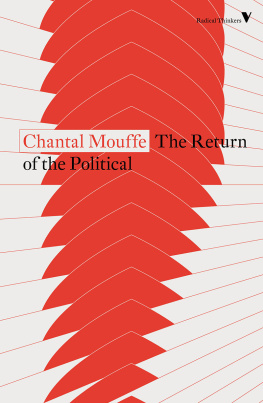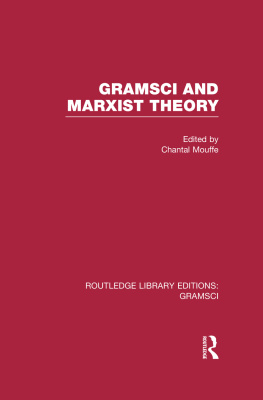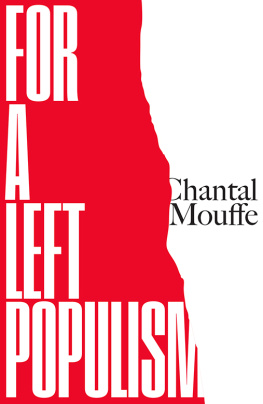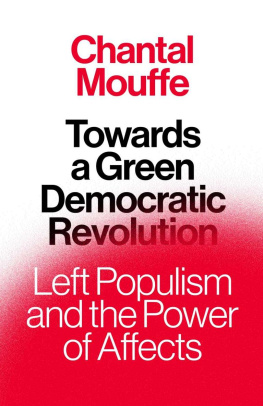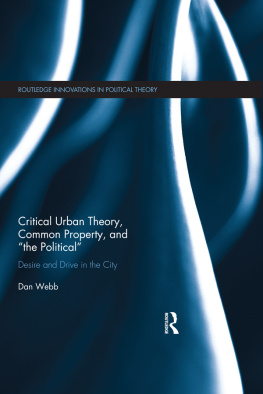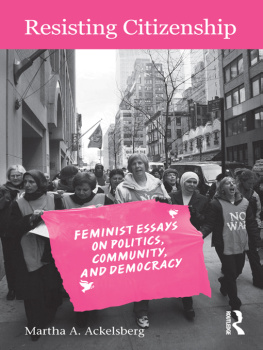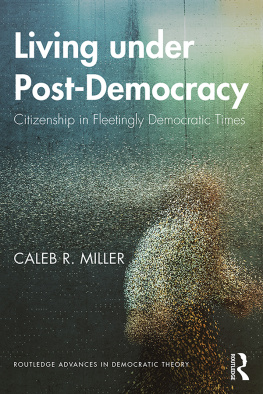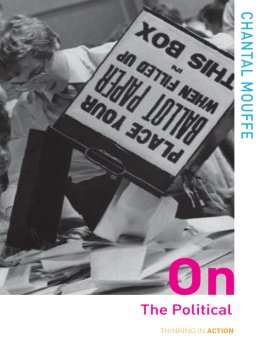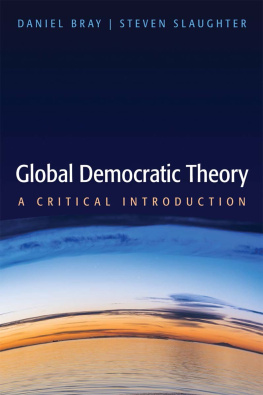Contents

THE RETURN OF THE POLITICAL
THE RETURN OF THE POLITICAL
Chantal Mouffe

First published by Verso 1993
This edition published by Verso 2005
Verso 1993, 2005
All rights reserved
The moral rights of the author have been asserted
3 5 7 9 10 8 6 4
Verso
UK: 6 Meard Street, London W1F 0EG
USA: 180 Varick Street, New York NY 10014-4606
www.versobooks.com
Verso is the imprint of New Left Books
ISBN 1-84467-057-0
British Library Cataloguing in Publication Data
A catalogue record for this book is available from the British Library
Library of Congress Cataloging-in-Publication Data
A catalog record for this book is available from the Library of Congress
Printed and Bound in the United Kingdom by Bookmarque
Contents
The articles collected in this volume were originally published as follows: Radical Democracy: Modern or Postmodern? in Andrew Ross, ed., Universal Abandon? The Politics of Postmodernism, University of Minnesota Press 1988; American Liberalism and its Communitarian Critics (originally entitled American Liberalism and its Critics: Rawls, Taylor, Sandel and Walzer) in Praxis International, vol. 8, no. 2, July 1988; Rawls: Political Philosophy without Politics in David Rasmussen, ed., Universalism vs Communitarianism, MIT Press 1990; Democratic Citizenship and the Political Community in Chantal Mouffe, ed., Dimensions of Radical Democracy, Verso 1992; Feminism, Citizenship and Radical Democratic Politics in Judith Butler and Joan Scott, Feminists Theorize the Political, Routledge 1992; Towards a Liberal Socialism is the edited text of a paper presented at the World Congress of the International Political Science Association in Buenos Aires, Argentina, in July 1991; On the Articulation between Liberalism and Democracy is the edited text of a paper presented at the conference The Legacy of C. B. Macpherson in Toronto, Canada, in October 1989; Pluralism and Modern Democracy: Around Carl Schmitt in New Formations, no. 14, Summer 1991; Politics and the Limits of Liberalism was written for this volume.
This volume brings together nine pieces written in the last five years. Some of them are articles already published, mostly in collective volumes; others are texts of presentations at conferences. The last one, Politics and the Limits of Liberalism has been written especially for this book.
From different angles, all the essays deal with the same topics: radical democracy, liberalism, citizenship, pluralism, liberal democracy, community which are here approached from an anti-essentialist perspective.
The central theme that provides the unity of the book is a reflection on the political and on the ineradicable character of power and antagonism. I have tried to draw the consequences of such a reflection for a critique of the current rationalist and individualist liberal discourse, as well as for a reformulation of the lefts project in terms of radical and plural democracy.
Since the pieces were conceived for diverse audiences, there is obviously a certain amount of repetition due to the necessity of making the same points in different contexts. Nevertheless I decided to leave them in their original form because I consider that which is reiterated to be of the greatest importance.
Several of the essays were researched and written when I was a Member of the Institute for Advanced Study in Princeton in 198889 and a Senior Fellow at the Society for the Humanities at Cornell University in 198990.1 am very grateful to both institutions for their support.
Alas, poor race of mortals, unhappy ones,
from what conflicts and what groans were you born
Empedocles
Introduction:
For an Agonistic
Pluralism
The trick is not to fool oneself about certain things: small rocky islands in the sea of self-deception. Clutching them and not drowning is the utmost that a human being achieves.
ELIAS CANETTI
1
Not long ago we were being told, to the accompaniment of much fanfare, that liberal democracy had won and that history had ended. Alas, far from having produced a smooth transition to pluralist democracy, the collapse of Communism seems, in many places, to have opened the way to a resurgence of nationalism and the emergence of new antagonisms. Western democrats view with astonishment the explosion of manifold ethnic, religious and nationalist conflicts that they thought belonged to a bygone age. Instead of the heralded New World Order, the victory of universal values, and the generalization of post-conventional identities, we are witnessing an explosion of particularisms and an increasing challenge to Western universalism.
Taken by surprise by such a convincing refutation of their optimistic forecasts, many liberals have reacted by evoking the deferred effects of totalitarianism or a new upsurge of the archaic. They respond as if it represented only a temporary delay on the road that necessarily leads to the universalization of liberal democracy: a short parenthesis before rationality reimposes its order, or a last desperate cry of the political before it is definitively destroyed by the forces of law and universal reason.
Because it is indeed the political which is at stake here, and the possibility of its elimination. And it is the incapacity of liberal thought to grasp its nature and the irreducible character of antagonism that explains the impotence of most political theorists in the current situation an impotence that, at a time of profound political change, could have devastating consequences for democratic politics.
2
This evasion of the political could, I believe, jeopardize the hard-won conquests of the democratic revolution, which is why, in the essays included in this volume, I take issue with the conception of politics that informs a great deal of democratic thinking today. This conception can be characterized as rationalist, universalist and individualist. I argue that its main shortcoming is that it cannot but remain blind to the specificity of the political in its dimension of conflict/decision, and that it cannot perceive the constitutive role of antagonism in social life. With the demise of Marxism, the illusion that we can finally dispense with the notion of antagonism has become widespread. This belief is fraught with danger, since it leaves us unprepared in the face of unrecognized manifestations of antagonism.
In an attempt to bring a much needed corrective to that liberal vision, several pieces below engage with the work of Carl Schmitt. Schmitts critique of liberal democracy constitutes, in my view, a challenge that we cannot ignore. Yet I also think that, by revealing the deficiencies of liberalism, he can help us unwittingly to identify the issues that need to be addressed and thereby to gain a better understanding of the nature of modern democracy. My objective is to think with Schmitt, against Schmitt, and to use his insights in order to strengthen liberal democracy against his critiques. By drawing our attention to the centrality of the friend/enemy relation in politics, Schmitt makes us aware of the dimension of the political that is linked to the existence of an element of hostility among human beings. This can take many forms and manifest itself in very different types of social relations. This is an important idea, which I have tried to reformulate within the framework of the contemporary critique of essentialism that I take to constitute the most fruitful theoretical approach to pluralist democracy.

